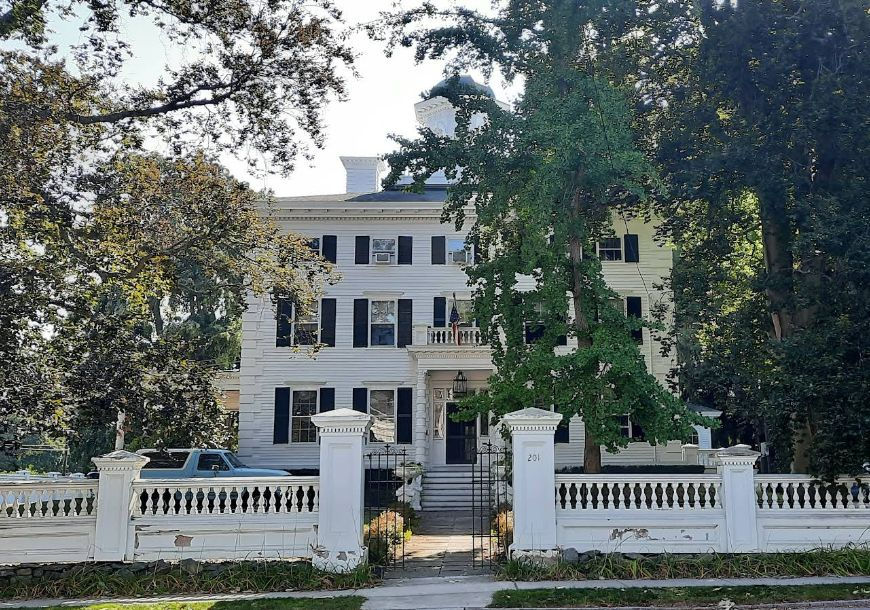The Strange Life Of Timothy Dexter, Accidental Millionaire and Disappointed With His Own Funeral.
- Dec 14, 2022
- 7 min read

“There are but few men who are sufficiently attentive to their own thoughts, and able to analyze every motive or action. Among these, Timothy Dexter was not one.” ~ Samuel L. Knapp (1848)
If there’s ever been a man who built a fortune by accident and then spent the rest of his life trying to prove he wasn’t an idiot, it was Timothy Dexter. He shipped bed warmers to the Caribbean, coal to Newcastle, and stray cats to the West Indies, and somehow made a profit every single time. Some called him the luckiest man in America. Others called him a fool.
He preferred to call himself Lord Timothy Dexter, “the greatest philosopher in the Western World.”
This is the strange, hilarious, and oddly moving story of a man who stumbled into riches, offended polite society, staged his own funeral just to see who cared, and wrote one of the most bizarre books in American history.

From Tannery Apprentice to Self-Proclaimed Aristocrat
Timothy Dexter was born in Malden, Massachusetts, on 22 January 1747, into a poor Irish immigrant family. Schooling ended before it began, by the age of eight he was working as a farmhand, and at fourteen he was apprenticed to a tanner in Charlestown. When his seven-year apprenticeship ended, his master gave him the traditional freedom suit, a brand-new outfit to mark his entry into the working world. Dexter promptly sold it for eight dollars and twenty cents.
With that money, he moved north to Newburyport, a thriving seaport filled with tradesmen and opportunists. Within a year he’d bought a small plot of land. Then, in a move that would change his fortunes forever, he married Elizabeth Frothingham, a wealthy widow with a leather business, a handsome estate, and an established place in Boston society.
Dexter opened his own shop in her basement, selling moosehide trousers, gloves, hides, and whale blubber. Elizabeth opened her own shop upstairs. He was practical, industrious — and desperate to belong to the world of the well-born merchants who still looked down on him as an uneducated upstart.

The Lucky Gamble That Made Him Rich
In the 1770s, as the American Revolution raged and the new Continental Congress issued its own paper money, most wealthy Bostonians scoffed at the idea that these “Continental dollars” would ever be worth anything. Dexter, seeking investment advice, asked these same men where he should put his savings. They gave him the worst tip they could think of: buy Continental currency.
They meant it as a joke. Dexter took it seriously, and invested nearly everything.
When the war ended, the new government redeemed the notes at full value. Overnight, Timothy Dexter went from being a humble tradesman to one of the richest men in Massachusetts. What his peers thought would ruin him made him a millionaire.
Some called it shrewd. Others called it luck. Dexter didn’t care. He had money — and he wanted respect.
The Man Who Couldn’t Lose (Even When He Tried)
Newly wealthy but still snubbed by Boston’s upper crust, Dexter doubled down on his desire to prove himself. He built two ships, The Mehitabel and The Congress, and asked his refined acquaintances for advice on what goods to trade. They gave him deliberately absurd suggestions, certain he’d lose his fortune.
But Dexter had a knack for turning disaster into profit.
He sent bed warmers to the West Indies, a tropical region where they were useless. Locals, however, bought them as molasses ladles, and Dexter made a tidy return. When he shipped wool mittens to the Caribbean, Asian traders passing through snapped them up for export to Siberia. When his town was overrun with rats, he bought up all the stray cats, shipped them to Caribbean warehouses, and sold them for pest control. Every time, he won.
Finally, his rivals dared him to send coal to Newcastle, England’s mining capital. It was the ultimate joke: the city that produced more coal than anywhere on Earth. But while Dexter’s ships were en route, Newcastle’s miners went on strike. When his cargo arrived, the British were desperate for fuel, and Dexter sold it all at a premium.

To outsiders, he was a walking contradiction: a man of no education who somehow always landed on his feet. To his neighbours, he was an infuriating reminder that the universe occasionally rewards the undeserving.
Fact or Folklore? The Stories Behind the Legend
The stories of Dexter’s outlandish business triumphs are irresistible, but did they actually happen?
Nineteenth-century biographer William Cleaves Todd doubted it. He examined Newburyport’s trade records and found no trace of such transactions. He argued that Dexter himself may have invented these tales to keep people talking about him. According to Todd, Dexter was a born storyteller, part trickster, part self-publicist, who loved to exaggerate his own exploits.
Another chronicler, Samuel Knapp, took the opposite view. Writing half a century later, he insisted Dexter was far more cunning than his peers gave him credit for. “Everything that he undertook worked well,” Knapp wrote, “not by luck, as many thought and said, but by most excellent judgment.”
The truth probably lies somewhere in between. Dexter may have spun his own myths, but he also possessed a keen instinct for timing, a taste for spectacle, and a willingness to take chances that more cautious men would never dare.
“Lord Timothy Dexter” and His Statue Garden
Wealth did not buy Dexter acceptance. The genteel society of Massachusetts still mocked him, which only made him louder.
He moved into a grand mansion in Newburyport and filled the gardens with gaudy wooden statues, of George Washington, Napoleon, William Pitt, Thomas Jefferson, and himself. Beneath his own statue he carved the words:
“I am the first in the East, the first in the West, and the greatest philosopher in the Western World.”
He also began calling himself “Lord Timothy Dexter”, later the “Earl of Chester” after buying an estate in Chester, New Hampshire. Anyone who addressed him as “Lord Chester” received a quarter if they were a child, or dinner and drinks if they were an adult. He even offered to fund a new hall or pave a street if it were named after him.
But his eccentricity didn’t stop at titles. He argued constantly with his wife, calling her “a ghost” and claiming she was already dead. At social gatherings, his behaviour oscillated between comic and chaotic. He was rich, restless, and utterly obsessed with how others saw him.
The Funeral He Attended Himself
That obsession reached its peak when Dexter decided to stage his own funeral, just to see who would mourn him.
He spread news of his death, bribed his family to act grief-stricken, and organised a lavish ceremony attended by more than 3,000 people. Hidden away, he watched the proceedings unfold. When his wife failed to display enough sorrow, he stormed out of hiding and beat her with a cane for not crying convincingly.

The ruse backfired spectacularly. Instead of revealing his true friends, it exposed his absurd vanity. The story made him a laughingstock, sealing his reputation as America’s most eccentric millionaire.
A Pickle for the Knowing Ones
In 1802, still hungry for recognition, Dexter decided to become an author. The result was one of the strangest books ever published in the United States:
A Pickle for the Knowing Ones, or Plain Truths in a Homespun Dress.
The book is a rambling collection of rants about politics, religion, and personal grievances, especially against his wife, written without punctuation or structure. Critics mocked it mercilessly. Dexter’s response was perfect: in the second edition, he added an extra page filled entirely with punctuation marks and instructed readers to “peper and solt it as they plese.”
To everyone’s astonishment, the book became a hit. Dexter printed thousands of copies and gave them away, and it went through eight editions during his lifetime. It’s still in print today, not for its literary merit, but for its sheer absurdity.
The Final Chapter
Timothy Dexter died on 26 October 1806, aged 59. Despite his antics, his will was surprisingly sensible. He provided for his family, left $2,000 to Newburyport for the poor, another $2,000 for the church, and $300 for a town bell in Malden. He even requested to be buried in a tomb he’d built in his garden, though the town refused, interring him instead in the city cemetery.
After his death, his mansion’s statues and furniture were sold off. The remaining figures were destroyed in a storm in 1815, their remains burned for firewood. In the centuries since, his house has been an inn, a boarding house, and, after a fire in 1988, a meticulously restored private home, rebuilt thanks to blueprints preserved by Historic New England.
The Fool Who Outsmarted Everyone
Timothy Dexter’s life sits somewhere between folklore and farce. Born poor, uneducated, and mocked by his peers, he managed to become rich, famous, and unforgettable. He played the fool, but perhaps that was the point. His contemporaries tried to laugh him out of high society, and instead, they made him a legend.
He may not have been a genius in business or literature, but he understood something that many of his “betters” did not: that attention is its own kind of wealth. Long before social media, Dexter mastered the art of self-mythology. His name still makes people smile, shake their heads, and read on.
Two centuries later, the man who sold coal to Newcastle is still proving everyone wrong.
Sources
Todd, William Cleaves. Life and Letters of Lord Timothy Dexter (1886)
Knapp, Samuel L. Biographical Sketches of Eminent Lawyers, Statesmen and Men of Letters (1821)
A Pickle for the Knowing Ones by Timothy Dexter (Project Gutenberg Edition)
New England Historical Society – “Timothy Dexter, Lord of Chester”
Historic New England – “Dexter House, Newburyport”
Smithsonian Magazine – “The Eccentric Life and Times of Timothy Dexter”







































































































Comments